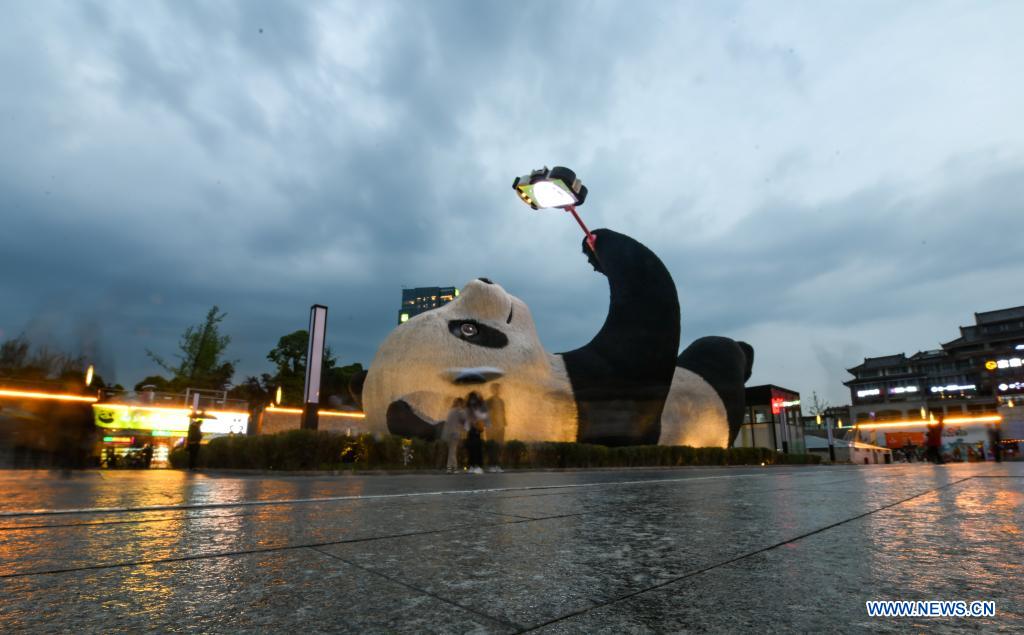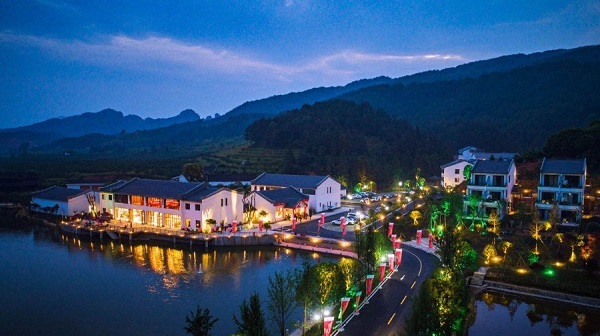Key events related to Japan's decision to dump Fukushima contaminated water into sea
TOKYO, April 13 (Xinhua) -- Japanese Prime Minister Yoshihide Suga said Tuesday that his government has decided to discharge contaminated radioactive wastewater in Fukushima Prefecture into the sea amid domestic and international opposition.
The plan has been facing strong opposition from the Japanese fishery industry and the public, with fishery industry representatives saying it would undo years of work to restore their reputation.
Meanwhile, such a move also raised concerns from neighboring countries about possible negative impacts on people's health and fishery businesses resulting from the discharge.
Here is a timeline of key events related to the Japanese government's decision to dump the contaminated water into the sea:
March 11, 2011
-- Struck by a magnitude-9.0 earthquake and ensuing tsunami that hit Japan's northeast, the No. 1-3 reactors at the Fukushima Daiichi nuclear plant suffered core meltdowns. The plant has been generating massive amount of radiation-tainted water since the accident happened as it needs water to cool the reactors.
March 2013
-- The Japanese government began trial operation of treating the radioactive water by using an advanced liquid processing system, or ALPS, to remove most contaminants. However, things like tritium, a radioactive byproduct of nuclear reactors, are hard to filter out.
April 2016
-- A government panel proposed several options for disposing of the radioactive water including evaporating or storing underground the tritium-laced water from the plant.
February 2020
-- A government panel released a report claiming that releasing the water into the sea or evaporating it are realistic options.
June 2020
-- At its ordinary general meeting, the national federation of fisheries cooperatives known as JF Zengyoren adopts a special resolution strongly opposing the discharge of radioactive water into the sea.
March 2021
-- Japanese Economy, Trade and Industry Minister Hiroshi Kajiyama told Rafael Grossi, director general of the International Atomic Energy Agency (IAEA), that Japan hopes the United Nations nuclear watchdog will conduct a safety review.
April 7, 2021
-- Japanese Prime Minister Yoshihide Suga held a meeting with Hiroshi Kishi, head of the national federation of fisheries cooperatives known as JF Zengyoren, who reiterated his organization's strong opposition to the idea of dumping the radioactive water into the sea while Suga said his government will soon make a decision.
April 13, 2021
-- The Japanese government formally decided to discharge contaminated radioactive wastewater in Fukushima Prefecture into the sea after a meeting of relevant ministers to formalize plans.
Photos
Related Stories
- China concerned about Japan's decision to release Fukushima water into sea: FM
- 3 more Japanese prefectures take tougher measures amid surging COVID-19 cases
- Japan decides to dump Fukushima contaminated water into sea amid domestic, int'l opposition
- Domestic, global economies set to be rattled by Japan's Renesas adding to severe chip crunch
- Japan designates 3 prefectures for stronger COVID-19 measures
Copyright © 2021 People's Daily Online. All Rights Reserved.










